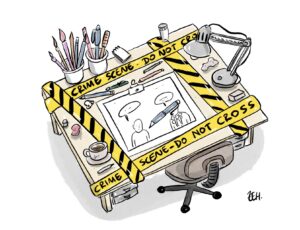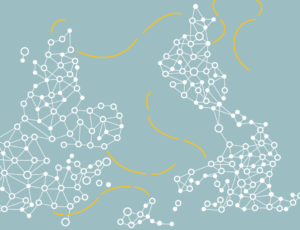
Institutional Surveillance and the Struggle for Epistemic Diversity
NIAS Opening of the Second Semester of the Academic Year 2025-2026, keynote by Annelies Moors
NIAS welcomes its incoming fellows, alumni, partners and others to our Opening of the Second Semester. Our opening marks the official launch of the NIAS Studies in Academic Freedom and Epistemic Diversity and the publication of the first volume in the book series – Annelies Moors’ groundbreaking and insightful Doing Ethnography: Institutional Surveillance and the Struggle for Epistemic Diversity.
There are many academic freedoms, and equal treatment of, and opportunities for scholars across disciplines is certainly one of them, crucial as it is to an open, post-colonial and non-hegemonic academic culture. But there exists a tension between equal treatment and the different needs and possibilities of scholars and their work… here, as elsewhere, equality of opportunities does not guarantee equality of outcomes.
You are invited to an afternoon discussion among (and with) Annelies Moors, Nadia Bouras, Sarah Bracke and Jeroen Geurts about dominant systems of research management and their wanted and unwanted impacts, how scholars and science administrators might go beyond binaries such as ethnography versus other academic fields, sciences versus the humanities, or quantitative versus qualitative research and what that might yield; and what a more epistemically inclusive kind of research management – one that works harder to take into account integral disciplinary differences and power relations – might look like.
Programme
15:30 – Doors open
16:00 – Welcome, by Jan Willem Duyvendak
16:15 – Introduction, by Merlijn Olnon
16:20 – Keynote, by Annelies Moors
16:45 – Panel discussion and audience Q&A, with Nadia Bouras, Sarah Bracke, Jeroen Geurts & Annelies Moors (mod. Merlijn Olnon)
17:35 – Reception
Register for Presentation & Conversation Doing Ethnography by Annelies Moors
Launch Book Series: NIAS Studies on Academic Freedom and Epistemic Diversity
Advance Praise for Doing Ethnography: Institutional Surveillance and the Struggle for Epistemic Diversity
Doing Ethnography is the book we, ethnographers of the global world, have desperately needed. With remarkable clarity and courage, Annelies Moors tackles the bureaucratic stranglehold that threatens to suffocate ethnographic research. What makes Doing Ethnography essential is Moors’ refusal to accept the false choice between ethics and ethnography. Instead, she demonstrates that the standardized protocols, designed for positivist research, often work against the very values they claim to protect. There is an epistemic violence embedded in one-size-fits-all regulations that fail to recognise the relational, processual nature of ethnographic knowledge production. Moors’ arguments are both validating and urgent. This book should be required reading for every ethics committee member, research administrator, and scholar wrestling with the growing tensions between doing ethnography and satisfying institutional demands. Moors gives us the vocabulary and the courage to insist on epistemic diversity—not as a luxury, but as a precondition for ethical and rigorous research.
– Sertaç Sehlikoğlu, University College London
This book rescues research ethics, integrity and transparency from the clutches of an alienated and alienating managerialism and puts them at the heart of a relational ethnographic practice.
– Ghassan Hage, University of Melbourne
Launching the NIAS Book Series Studies on Academic Freedom and Epistemic Diversity with Leuven University Press
In recent decades, academic research has come under increasing institutional surveillance and control. Doing Ethnography traces the rise of ethical review procedures, open science mandates, and integrity protocols, examining how these developments shape ethnographic practice. It critically explores key themes such as doing no harm, informed consent, transparency, anonymity, researcher positionality, and the sharing of field notes.
The book argues that contemporary academia often enforces universal, bureaucratic forms of regulatory ethics. Rooted in quantitative and (post-)positivist paradigms, these frameworks frequently clash with ethnography’s interpretive, intersubjective, and immersive fieldwork approach. In response, it calls for a situated, context-sensitive ethics of care attuned to the specificities of ethnographic engagement. Ultimately, Doing Ethnography offers both a critical reflection on institutional power and a plea to recognise and sustain the epistemic diversity on which academic freedom depends.
Annelies Moors is an anthropologist and professor emerita at the Amsterdam Institute for Social Science Research of the University of Amsterdam. Most recently she was the PI of the ERC advanced grant ‘Problematising Muslim marriages: ambiguities and contestations’ and held the NIAS fellowship ‘The struggle for the future of ethnography’.
Netherlands Institute for Advanced StudyThe NIAS Book Series seeks to open or further discussions about where scholars and disciplines currently stand, where we envision them going and what is needed to help them get there.
About the NIAS Book Series Studies on Academic Freedom and Epistemic Diversity
Institutes for Advanced Study hold a special position within academia: by welcoming world-class scholars and fostering disciplinary, epistemological and cultural diversity, these institutes are highly conducive to generating new comparative perspectives and cross-pollinations. The particular combination of advanced scholarship, freedom from institutional constraints and the liberty to venture into new directions, makes them ideal laboratories for reflecting on science and society – and, consequently, for engaging with fundamental questions about academic freedoms, epistemic diversity and the science system
With this series of monographs and edited volumes, the Netherlands Institute for Advanced Study in the Humanities and Social Sciences (NIAS-KNAW) aims to present insights from the institute’s fellows, alumni and partners that foreground the structural challenges facing scholars, disciplines, knowledge domains and academic institutions as they contend with political, policy-related, economic and societal pressures. In doing so, the series seeks to open or further discussions about where scholars and disciplines currently stand, where we envision them going and what is needed to help them get there.
Learn more about our Book Series published with Leuven University Press.



